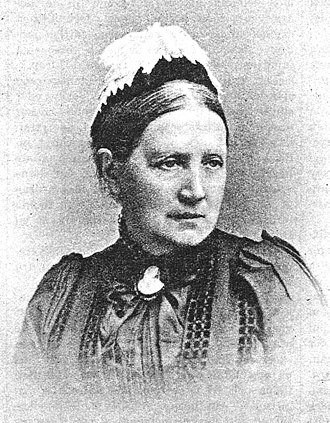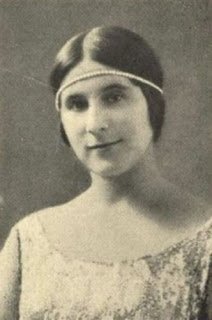Discover Your Roots
SIGN UPDiscover Your Roots
SIGN UPEbba is a captivating female name of Scandinavian origin, meaning "Boar." It is a diminutive form of the Germanic name Eberhard or Everhard, which translates to "strong." Alternatively, it may have roots in the Old English name Æbbe, associated with several early saints. The name Ebba has historical significance and was the 10th most popular name given to girls born in Sweden in 2009. Notable individuals bearing this name include Swedish countesses, courtiers, singers, actresses, and even saints like Æbbe of Coldingham. This timeless name carries a sense of strength and grace, embodying a rich heritage and a connection to Scandinavian roots. With its strong historical presence and meaningful origin, Ebba continues to be a popular and resonant choice for parents seeking a name that exudes strength and tradition.

Ebba-Elisabeth Busch, also known as Busch Thor, is a prominent Swedish politician who has been serving as the Deputy Prime Minister of Sweden, Minister for Energy, and Minister for Business and Industry since October 2022. Born on February 11, 1987, she has been the Leader of the Christian Democrats since April 2015. Growing up in Gunsta near Uppsala, Busch attended the Christian Word of Life primary school and later pursued the IB Diploma Programme at Katedralskolan in Uppsala, and peace and conflict studies at Uppsala University. Busch's political career began as the municipal party political secretary for the Christian Democrats councillor Gustaf von Essen in the Uppsala Municipality. Since then, she has played a significant role in the party's leadership and advocacy. As the leader of the Christian Democrats, she has been vocal about her views on multiculturalism and immigration, often taking a firm stance against certain policies. Her leadership has been characterized by uncertainty on how to profile the party, consistent low numbers in opinion polls, and an evolving approach to various political issues. Despite facing criticism and controversy, Busch has led her party to electoral success and has been known for her strong performances in debates. Busch's political views on migration and multiculturalism have sparked considerable public debate and garnered attention both nationally and internationally. Overall, she has established herself as a prominent figure in Swedish politics with a strong influence on

Ebba Eriksdotter Vasa (c. 1491 – 21 November 1549) was a prominent Swedish noblewoman, known for her close ties to royalty and influential role in court life during the 16th century. As the daughter of nobles riksråd Erik Karlsson Vasa and Anna Karlsdotter, she married riksråd Erik Abrahamsson Leijonhufvud in 1512, thus becoming known as Fru Ebba ('Lady Ebba'). Tragically, her husband was executed during the Stockholm Bloodbath in 1520, but Ebba managed to safeguard her family and estates, eventually enjoying privileges granted by her second cousin, King Gustav I. Her daughter Margaret's marriage to the king further solidified her significant position within the royal court, where she played key ceremonial roles and wielded considerable influence. Known for her staunch Catholic beliefs, Ebba was entrusted with Vreta Abbey and later retired there, passing away in 1549. Her legacy as a resilient and influential figure in Swedish history endures to this day.

Ebba Månsdotter Lilliehöök of Kolbäck, a Swedish noblewoman, was born in 1529 at Upplo Manor, Västergötland. She became the heiress of substantial estates after her father's death and married Sten Eriksson, Baron and Count Leijonhufvud, in 1548. Known for her influential position at the royal court, she played a role in the political events of her time. After her spouse's death, she was granted the title of Count and the County of Raseborg in Finland. Despite being described as "masculine" and politically controversial, she held a prominent position in Swedish society. Ebba Lilliehöök passed away in 1609 at Lerjeholm in Angered parish, Älvsborg County. She is remembered as the ancestral mother of the Lewenhaupt noble family and left a mark in Swedish history. Her life and legacy continue to be an intriguing subject for further reading and historical exploration.

Ebba Ramsay (1 October 1828 – 29 October 1922) was a prominent Swedish social worker, writer, and translator, known for her groundbreaking work in advocating for the care and support of mentally and physically challenged children in Sweden. Born as Ebba Gustava Karström, she was raised in a devout family and received an education that included music, languages, and the arts. Ramsay's career in social work began in Gothenburg, where she became involved in caring for sick and disabled children. Her work was heavily influenced by her studies in England and Scotland, where she learned about innovative social work practices. In 1874, Ramsay founded the first institution in Sweden dedicated to physically and mentally challenged children, named Vilhelmsro. Throughout her career, she published numerous translations, articles, and pamphlets on various topics, including children's health, epilepsy, religious enlightenment, and social projects. Her dedication and contributions to the welfare of children with disabilities have left a lasting impact on Swedish society. Ebba Ramsay's legacy continues to inspire social workers and advocates for children's rights.

Ebba Anna Elisabeth Wilton, also known as Ebba Dane, was a Danish operatic soprano renowned for her exceptional coloratura singing. She graced the stage of the Royal Danish Theatre from 1924 to 1949, captivating audiences with her performances in iconic roles such as Olympia in The Tales of Hoffmann, Zerlina in Don Giovanni, and Gilda in Rigoletto. Ebba's musical journey began at a young age, and under the guidance of her husband, the tenor Einer Wilton, her talent flourished. This led to her remarkable debut as the Queen of the Night in The Magic Flute at the Royal Danish Theatre in 1924. Throughout her illustrious career, she also showcased her vocal prowess in Berlin, Paris, and Riga. Notably, she was recognized as a Royal Chamber Singer by King Christian X in 1941. Ebba Wilton's legacy lives on through her recordings, which have been preserved and released on CD. Her contribution to the world of opera remains an enduring testament to her exceptional artistry and dedication.
All images displayed on this page are sourced from Wikipedia or Wikimedia Commons.We use these images under their respective Creative Commons or public domain licenses. Wherever applicable, author attributions and license information are provided. If you believe an image is used incorrectly or outside its license terms, please contact us so that we can review and correct the issue.